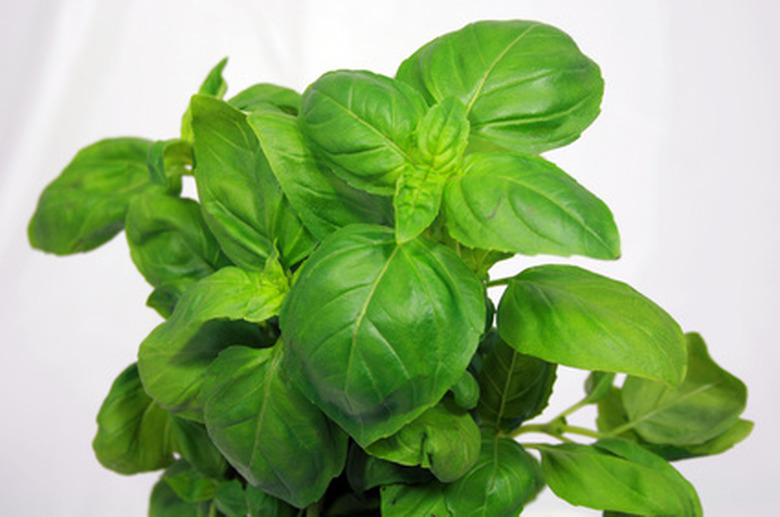How To Grow Herbs In Alabama
Things Needed
- Organic compost
- Garden tiller or hoe
- Garden rake
- Handheld spade or shovel
- Organic mulch
Herbs are seed plants that have been used in various cultures throughout history for seasoning foods as well as for medicinal, aromatic and ornamental purposes. Most herbs are easy to grow, can adapt to a wide range of growing conditions and add beauty and interest to almost any landscape. Hundreds of types of herbs are available to home gardeners, and many of those are suitable for growing in the warm climate of Alabama.
Selecting and Preparing the Garden Area
Step 1
Select a planting area with well-drained soil that receives at least six to eight hours of direct sunlight each day.
Step 2
Take a sample of soil to your local extension office for testing. Herbs grow best in soil with a pH neutral level of 6 to 7. Purchase any recommended nutrients, like lime, that may required to adjust the pH level of soil.
- Herbs are seed plants that have been used in various cultures throughout history for seasoning foods as well as for medicinal, aromatic and ornamental purposes.
- Purchase any recommended nutrients, like lime, that may required to adjust the pH level of soil.
Step 3
Break up soil in the planting area with a garden tiller or hoe. After removing weeds and debris from the area with a rake, mix in organic compost and any required nutrients.
Growing Herbs from Packaged Seed
Step 1
Create furrows with a hoe and sow seed in directly into soil. Follow spacing and planting depth directions on the package; these vary depending on what type of herb you are planting.
Step 2
Cover seeds with a light application of soil and pat down.
Step 3
Apply a mist or fine spray of water, to avoid washing away newly planted seeds, until soil is evenly moist.
Step 4
Thin plants to approximately one to two inches apart after seedlings emerge to avoid overcrowding.
- Break up soil in the planting area with a garden tiller or hoe.
- Cover seeds with a light application of soil and pat down.
Growing Herbs from Purchased Transplants
Step 1
Dig holes approximately twice the size of plant rootballs. Space holes according to maturity size of plants. Remove plants from containers, center plants in holes then backfill with soil. Cover with soil only to the herbs' original planting depths.
Step 2
Spray plants lightly with water until soil is thoroughly moist several inches down.
Step 3
Add a one- to two-inch layer of organic mulch to the top of soil to help prevent weeds and allow herbs to retain moisture.
Tip
Plant herb seeds and transplants into the ground in late March or April, after the danger of frost has passed. Adding peat, compost and other natural planting media will improve drainage and air circulation in areas with heavy Alabama clay soil. Water young seedlings and transplanted herbs when the soil becomes dry on the surface. After the plants become established, make sure herbs receive at least one inch of water per week through rain or irrigation. Some herbs may require more water during the hot summer months to prevent wilting.
Warning
Too much fertilizer can produce an abundance of poorly favored foliage on herb plants. Do not over fertilize. Herbs need adequate space to receive optimal light and air circulation. To prevent disease and spindly plants, do not space herbs too closely together.
